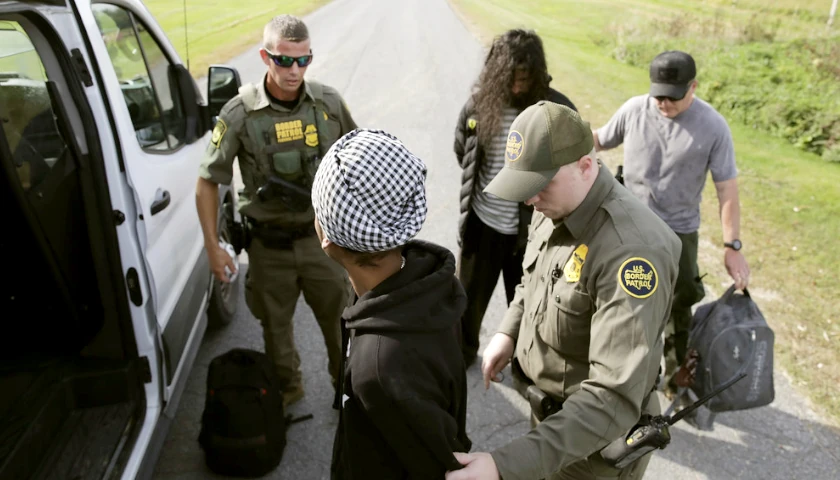by Casey Chalk
Monkeypox has America’s public health establishment in a bit of an awkward spot. Health and Human Services Secretary Xavier Becerra last Thursday labeled monkeypox a public health emergency. “We’re prepared to take our response to the next level in addressing this virus, and we urge every American to take monkeypox seriously and to take responsibility to help us tackle this virus,” he said.
Sounds, well, serious. But in reality, monkeypox so far has not proven to be a virus that can strike anyone at any time. Since May 18, the United States has confirmed just over 7,100 monkeypox cases, with the vast majority of those cases occuring among men who have sex with men. There are only about 10 known pediatric cases globally.
Compounding the confused messaging is the tenor of the public awareness campaign. In late July, Tedros Adhanom Ghebreyesus, director general of World Health Organization, suggested that homosexual men might consider “for the moment, reducing your number of sexual partners, reconsidering sex with new partners.” The CDC on Friday similarly updated its guidance regarding monkeypox, suggesting to gay men: “Limit your number of sex partners to reduce your likelihood of exposure.” It also warned that, “spaces like back rooms, saunas, sex clubs, or private and public sex parties . . . are more likely to spread monkeypox.”
Other institutions representing the liberal elite are having similar problems trying to describe a national public health emergency that appears to be restricted almost exclusively to gay men. The last weekend of July, “thousands of gay men clad in leather, latex—and often much less” convened along Folsom Street in San Francisco, with city officials making “no attempt to rein in festivities or warn attendees to have less sex,” reported the Washington Post.
Still, it’s worth asking why all the hand wringing about a disease that has yet to kill a single American, and that has so far affected a number of Americans almost equal to those who are hospitalized every day for COVID-like symptoms? Perhaps because decades of careful messaging about the supposed normality of the gay lifestyle in media, the entertainment industry, and public education is being undermined by the inescapable, incovenient fact that a sizeable percentage of gay men engage in activities most Americans, even in our increasingly post-Christian, sexually inclusive society find bizarre, if not revolting.
Not that we didn’t know this. According to a 2013 study, homosexual men under the age of 24 acquired new sexual partners at almost double the rate of heterosexual men, and more than three times the rate of heterosexual men ages 35 to 39. This isn’t really even controversial: the CDC’s website explicitly notes that “gay, bisexual, and other men who have sex with men on average have a greater number of lifetime sexual partners.” The CDC also explains that the prevalence of HIV among gay men is 40 times that of heterosexual men, and that “receptive anal sex is 18 times more risky for HIV acquisition than receptive vaginal sex.”
Clinical studies of the sexual practices of gay men dating back to the 1970s have noted that homosexual men regularly engage in compulsive, reckless, and irresponsible behavior. Three decades ago, this was regularly reported in popular publications, including the Village Voice and Newsweek. It was also discussed in such books as Robert R. Reilly’s Making Gay Okay (2015), John F. Harvey’s The Truth About Homosexuality (1996) and Charles Socarides’ Homosexuality (1979). Reilly cites Dr. Richard Fitzgibbons, who in 1996 argued that the impulsive and reckless behavior of homosexual men indicated “the presence of an addictive disorder.”
Yet as Reilly explains in great detail, the normalization of gay sex marched through the institutions, with increasingly little resistance. In the words of two liberal psychologists Rogers H. Wright and Nicholas A. Cummings, the American Psychiatric Association’s suddenly and completely yieled to political pressure by removing homosexuality from the DSM-III in 1973. As professor Ronald Bayer explained in Homosexuality and American Psychiatry, “instead of being engaged in a sober consideration of data, psychiatrists were swept up in a political controversy.” Once that happened, it was not long before gay sex was being aggressively pushed in education, the Boy Scouts of America, the military, and even U.S. foreign policy.
Detractors of this process have meanwhile been marginalized, ridiculed as bigots, and canceled. University of Texas sociologist Mark Regnerus about a decade ago conducted an extensive study that found that children raised in gay families had higher incidence rates for all manner of negative indicators related to employment, physical and emotional health, substance abuse, and criminal behavior. The backlash to Regnerus was dramatic, including an investigation by UT Austin to determine if he had engaged in “scientific misconduct.”
Americans have been told in hundreds of movies and television programs that gay men can be just as normal, boring, and bourgeois as middle-class Americans. “Gays are becoming boring and losing that sense of shared touchstones and flamboyant difference that once set them apart from the culture at large,” Time reported in 2015. Just look at Secretary of Transportation and possible 2024 Democratic presidential candidate Pete Buttigieg, the proud “father” of twins (I’m still not sure what he and Chasten are supposed to be doing in that hospital bed).
But they’re not that boring. In response to the monkeypox outbreak, sex columnist Dan Savage is “limiting sex to his husband and his boyfriend and skipping San Francisco’s Dore Alley festival this year,” reports the Washington Post. The example of Savage, a prominent pornography advocate and non-monogamist, may seem extreme, but his audience is in the millions. And the Dore Alley festival usually attracts many more thousands of people than it did this year. Sure, apparently some small minority of heterosexual people participate in sex parties, visit clubs, or attend concerts where they might sleep with a complete stranger or two. But there is simply no straight equivalent to what Savage and his friends do—indeed, monkeypox spread through two gay sex raves in Europe that were epic in size.
In other words, the gay lifestyle, at least for many of it practioners, is by no means “boring.” It’s also, as the monkeypox “emergency” is showing, not a little disturbing. Even liberal journalists seem a little concerned, if not (I’d wager) sickened by what they are learning about what many of their gay friend’s weekends look like. Yet with Obergefell seven years behind us, this is our new normal. That such a bizarre illness could provoke such risible rhetorical and mental gymnastics by our elite institutions to stick to the narrative proves how successful its crafters have been.
– – –
Casey Chalk is a senior contributor at The Federalist and an editor and columnist at The New Oxford Review. He is the author of The Persecuted: True Stories of Courageous Christians Living Their Faith in Muslim Lands.




